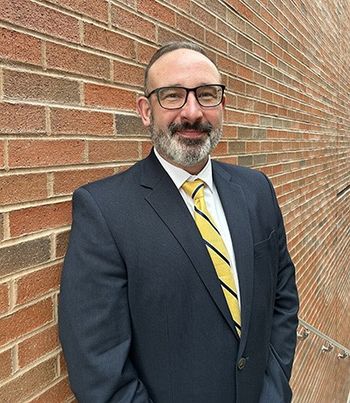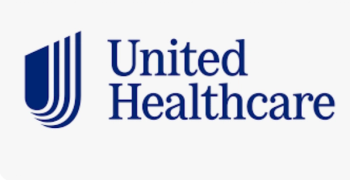
- Managed Healthcare Executive February 2019 Issue
- Volume 29
- Issue 2
Featured Exec Marc Harrison: President and CEO of Intermountain Healthcare
As a third-generation physician, Marc Harrison, has become an influential leader.
Having grown up in a “medical family,” Marc Harrison, MD, never had much doubt that he would follow in the footsteps of his father and grandfather and carry on the legacy as a third-generation physician.
“My dad’s a general surgeon and a really good dad. I didn’t see very much of him when I was young, so I used to go on rounds with him on Saturday mornings at one of the small hospitals in Pittsburgh, where most of the poor people got taken care of in his practice,” Harrison says. “I got to see him interact with these patients and it inspired me. So, all I ever wanted to do was be like my dad and be a good doctor.”
Today, Harrison serves as president and CEO of
“Healthcare as a field is rewarding because you truly make a difference in the lives of people,” he says. “Not only can we help people get better, we have the opportunity to help them stay well. In fact, Intermountain’s mission statement is ‘Helping people live the healthiest lives possible.’”
Making a difference
Harrison is an influential leader in healthcare and is responsible for the creation and execution of Intermountain’s strategy to transform healthcare through best clinical and operational practices designed to advance its mission.
Under his lead, Intermountain is doing a number of interesting things to not only advance the healthcare industry, but to continue to provide their patients with the highest quality care at the lowest possible cost.
More MHE featured execs:
For example, Intermountain Healthcare has launched one of the nation’s largest virtual hospital services-called Intermountain Connect Care Pro-bringing together 35 telehealth programs and more than 500 caregivers to enable patients to receive the medical care they need, regardless of where they are.
Additionally, to help patients by addressing the often-unwarranted shortages and high costs of lifesaving generic medications, Intermountain Healthcare initiated a collaboration of other leading health systems to form a new, not-for-profit generic drug company called
“Dan Liljenquist, the brilliant chief strategy officer for Intermountain, was the one who conceived this idea several years ago,” Harrison says. “With all health systems facing chronic shortages of vital life-saving drugs, and often capricious increases in the cost of these medications, we saw that action was needed to remedy the situation.”
It was back in August 2017 that Intermountain committed to cutting the number of opioids prescribed for acute pain across its entire system by 40% by the end of 2018 and Harrison notes it was close to achieving this goal. He attributes the success to a comprehensive, 360-degree approach that includes public education, and physician training and education regarding prescribing and payer limits.
“This means that there will be about two million fewer pills prescribed in 2018 for acute conditions,” he says. “Utah is one of only a handful of states that has seen a decrease in opioid deaths in 2018.”
There’s also a new collaborative called the
“It seeks to improve health by focusing on non-medical factors that affect health, such as housing instability, utility needs, food insecurity, interpersonal violence, and transportation,” Harrison says. “Intermountain will be investing $12 million over three years-$2 million annually in both Ogden and St. George-which will sustain the three-year demonstration project.”
The road to Utah
Harrison holds a medical degree from Dartmouth Medical School. Upon graduating from medical school, he was a resident at Intermountain
“I then joined the Cleveland Clinic as a pediatric intensivist,” he says. “I was then offered the chance to become the CEO of Cleveland Clinic’s
While there, he oversaw the establishment of 12 Institutes, five centers of excellence, and more than 30 medical and surgical specialties.
In 2016, after nearly five years in Abu Dhabi, Harrison returned to Utah as the president and CEO of Intermountain Healthcare, where he has thrived.
“There are leadership principles I follow,” he says. “Be purposeful-leadership is a high calling, advance the greater good. Be courageous-do what’s right, even in the face of adversity. Be agile-focus relentlessly on the goal and be ready for anything. In all matters, leaders should save our greatest intensity for human beings. Putting people at the center leads to the best decisions.”
When not at work, Harrison is a big fan of family time with his wife, Mary Carole, a pediatrician herself. He also enjoys keeping fit through participation in endurance sports, and is an All-American triathlete and seven-time Ironman.
Approach for the future
Intermountain has a long history of bold moves and innovation and that’s not expected to stop anytime soon.
In 1983, Intermountain created its own health insurance plan called SelectHealth, which covers approximately 850,000 lives in Utah and Idaho, something that has expanded under Harrison’s leadership.
More MHE featured execs:
In 1994, the Intermountain Medical Group was formed, and now employs about 2,300 physicians and advance practice clinicians. It also created an IRxMatch program, where patients and their providers have the opportunity to use a patient’s DNA to guide the prescribing of medications. Its Partners in Healing program helps patients recover quicker so that they can go home earlier, by allowing family members to be a part of the care and recovery.
“As an integrated system, we can effectively coordinate best care for patients,” Harrison says. “Intermountain’s focus will always be on doing what’s right for the patient. We are embracing consumerism, as many patients are becoming more price sensitive because of high-deductible plans. Providing high-quality care at the lowest appropriate cost is always going to be a winning strategy and is best for patients.”
Keith Loria is an award-winning journalist who has been writing for major newspapers and magazines for close to 20 years, on topics as diverse as sports, business, and healthcare.
Articles in this issue
almost 7 years ago
Managed Care Technology Survey 2019almost 7 years ago
The 4 Biggest New Areas to Focus on in 2019about 7 years ago
The State of Biosimilars in 2019about 7 years ago
How Three Hospitals Use Predictive Analytics to Reduce Readmissionsabout 7 years ago
Four Trends Health Execs Need to Follow in 2019about 7 years ago
Six Healthcare Technologies Coming in the Next 10 Yearsabout 7 years ago
The Impact of Big Data on Medical Decisionsabout 7 years ago
The Biggest Barrier to Home HealthcareNewsletter
Get the latest industry news, event updates, and more from Managed healthcare Executive.























